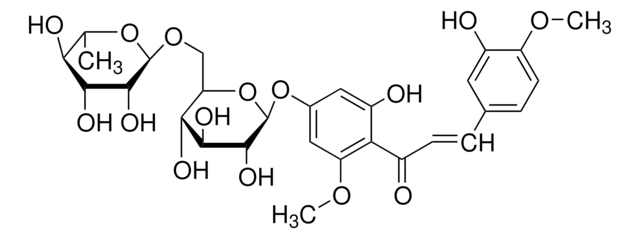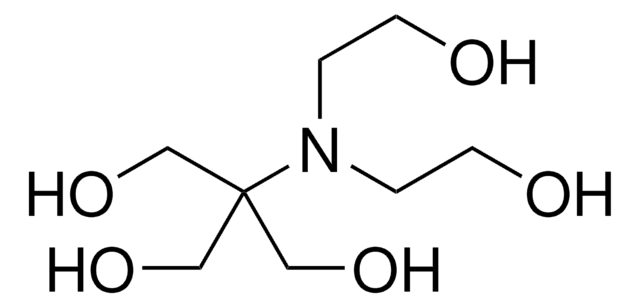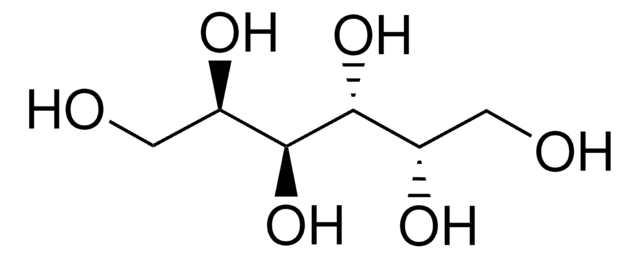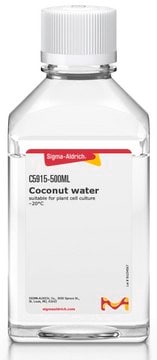22150
D-(+)-Cellobiose
≥99.0%, suitable for microbiology, Reducing sugar disaccharide
Synonym(s):
Cellobiose, Cellose, Beta-Cellobiose, D-Cellobiose, β-D-Glc-(1→4)-D-Glc, 4-O-β-D-Glucopyranosyl-D-glucose
About This Item
Recommended Products
Quality Level
Assay
≥99.0% (HPLC)
≥99.0%
form
powder
optical activity
[α]20/D +34±1°, 15 hr, c = 10% in H2O
mol wt
342.30 g/mol
ign. residue
≤0.1% (as SO4)
loss
≤1% loss on drying, 110 °C
mp
~235 °C (dec.)
239 °C (dec.) (lit.)
anion traces
chloride (Cl-): ≤50 mg/kg
sulfate (SO42-): ≤50 mg/kg
cation traces
As: ≤0.1 mg/kg
Ca: ≤10 mg/kg
Cd: ≤5 mg/kg
Co: ≤5 mg/kg
Cr: ≤5 mg/kg
Cu: ≤5 mg/kg
Fe: ≤5 mg/kg
K: ≤150 mg/kg
Mg: ≤5 mg/kg
Mn: ≤5 mg/kg
Na: ≤50 mg/kg
Ni: ≤5 mg/kg
Pb: ≤5 mg/kg
Zn: ≤5 mg/kg
application(s)
microbiology
SMILES string
OC[C@@H](O)[C@@H](O[C@@H]1O[C@H](CO)[C@@H](O)[C@H](O)[C@H]1O)[C@H](O)[C@@H](O)C=O
InChI
1S/C12H22O11/c13-1-4(16)7(18)11(5(17)2-14)23-12-10(21)9(20)8(19)6(3-15)22-12/h1,4-12,14-21H,2-3H2/t4-,5+,6+,7+,8+,9-,10+,11+,12-/m0/s1
InChI key
DKXNBNKWCZZMJT-WELRSGGNSA-N
Looking for similar products? Visit Product Comparison Guide
General description
Application
Storage Class Code
11 - Combustible Solids
WGK
WGK 1
Flash Point(F)
Not applicable
Flash Point(C)
Not applicable
Personal Protective Equipment
Choose from one of the most recent versions:
Already Own This Product?
Find documentation for the products that you have recently purchased in the Document Library.
Customers Also Viewed
Our team of scientists has experience in all areas of research including Life Science, Material Science, Chemical Synthesis, Chromatography, Analytical and many others.
Contact Technical Service







